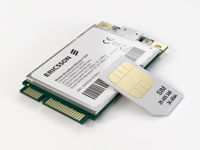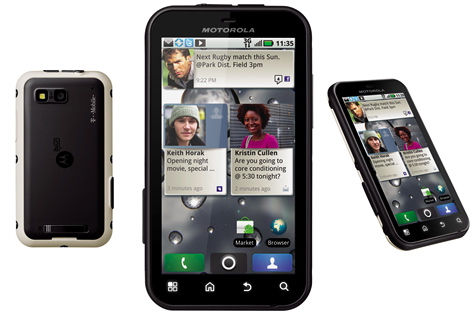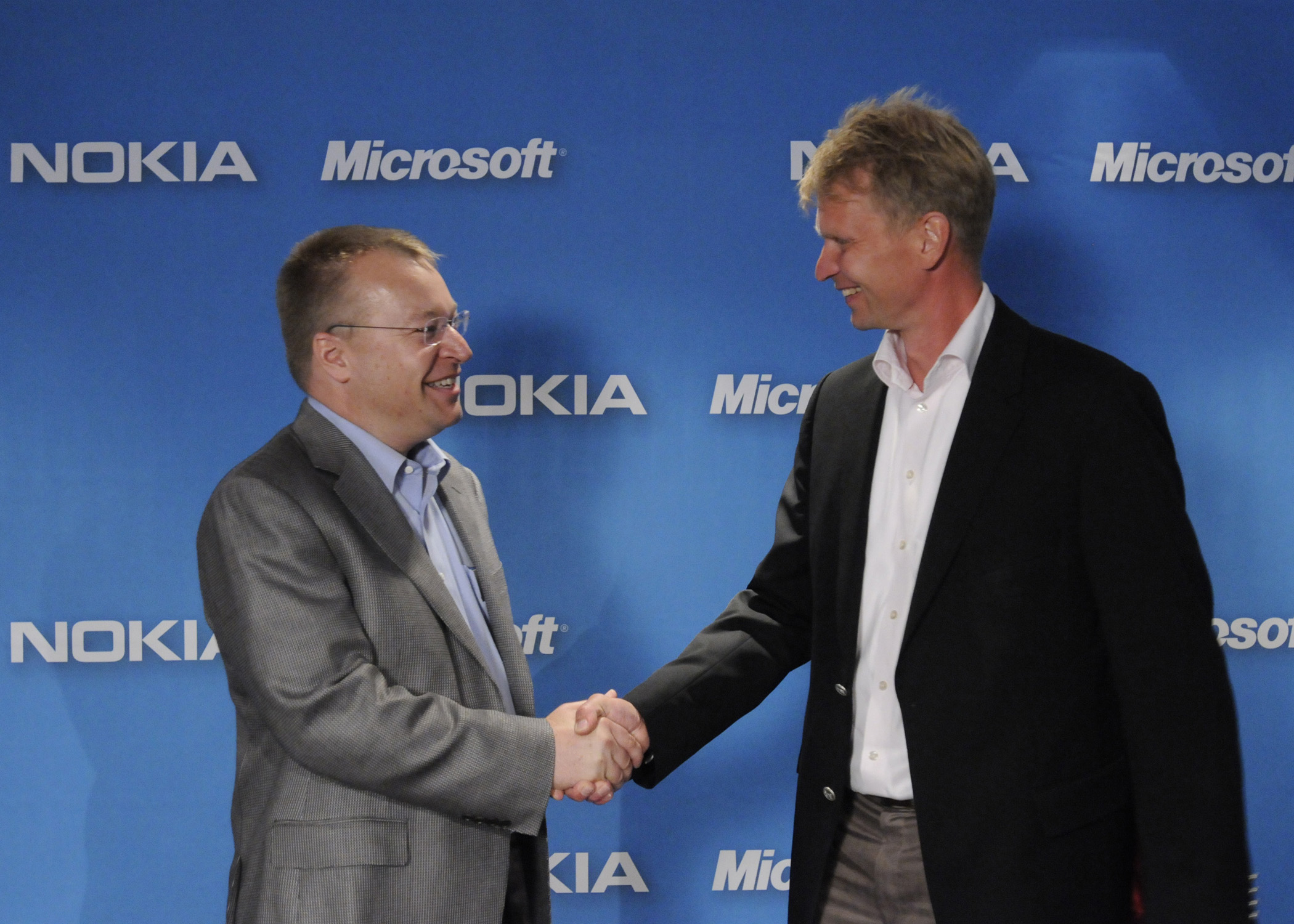
Windows comes to iPad with new Parallels mobile app
Last week, Mac virtualization software company Parallels announced the latest version of its flagship software, Parallels Desktop 6. But the company had a secret up its sleeve: iPad compatibility.
Today at the DEMO fall 2010 conference, Parallels announced the Parallels Mobile app integrates with Desktop 6 and MyParallels to bring Windows and its highly desirable functions like printing, Flash, and Outlook compatibility to iOS.

Bing overtakes Yahoo, and that's not a good thing
Short-sighted armchair analysts, pundits and Microsoft managers will rejoice in Bing snatching the No. 2 spot from Yahoo in U.S. search share. Everyone should cool their jets. Yahoo's losses are Microsoft's losses. The only gain that matters: Search share taken from Google, which isn't giving up much of anything to either Microsoft or Yahoo.
The problem: With Microsoft now serving up Yahoo search, the two are really one from a share perspective. Bing is starting to cannibalize Yahoo search, which simply isn't good for Microsoft.

Verizon moves in on Google's turf again with V CAST Apps
Verizon appears to be moving further away from Android's Google and open source core premise this week as it has begun to ask for submissions to its own app store, expected to debut as early as next week. The carrier appears to be following a similar structure to that of Apple, where apps must go through an approval process and revenues are split between Verizon and the developer.
It is not clear from reports that originally appeared on Android enthusiast site Android and Me Monday whether or not Verizon plans to replace the Android market with V CAST Apps. However it would not be the first time the company would have altered Android.

New Ericsson modules give wireless broadband to Intel-powered tablets, top-speed HSPA+ to notebooks
At the Intel Developer Forum Tuesday, Swedish telecommunications giant Ericsson unveiled its two newest mobile broadband modules: one is the first embedded 21Mbps HSPA+ module, and the other is the first module optimized for use in tablets running on Intel's upcoming "Oak Trail" processors.
Intel's Oak Trail mobile processor platform will be the cornerstone of the forthcoming crop of Windows tablets, with products from Dell, Asus, MSI, Sony, Fujitsu, and Toshiba all expected in early 2011. The platform is ideal for tablets and netbooks, Intel claims, because it runs on 50% less power than its other Atom-based platforms.

Are IDC and Gartner mobile OS forecasts trustworthy?
Microsoft's funeral for BlackBerry and iPhone is eerily foreshadowing. Apple 2.0 blogger Philip Elmer-DeWitt asks "Who Will Bury Whom?" It's the right question, but there's no easy answer. Last week, Gartner and IDC released seemingly non-congruent forecasts about mobile operating systems' futures. Whom should you believe? Gartner, IDC or Microsoft?
Windows Phone 7's release to manufacturing, which the mock funeral celebrated, is Microsoft's bold assault to recover lost territory. Before Apple released iPhone in June 2007, Windows Mobile's market share trailed only giant Symbian. Fast forward to 2010, and Microsoft's mobile OS is No. 5, whether measured by smartphones or all handsets, according to Gartner. Can Microsoft retake market share territory captured by upstarts Apple and Google?

FCC set to allow "white space" broadband after two-year wait
The Federal Communications Commission is expected to approve the use of so called "white spaces" -- or unused bandwidth freed up by the transition from analog to digital television signals -- for use in wireless broadband at its September 23 meeting.
While the technology would finally gain the FCC's full blessing, it is likely years before any actual implementation is seen. Regardless, the opportunities it provides to speed up the rollout of broadband across the country excites those who have been working hard to make the technology a reality.

Microsoft launches Lync 2010, finally gives enterprise communications suite a memorable name
Microsoft on Monday announced the release candidate of Lync 2010 and Lync Server 2010, the products formerly known as Office Communications Server (and even further back, Office Live Communications Server) and group chat client Communicator.
Lync is Microsoft's new brand for the communications and conferencing software suite that unites enterprise voice calling, IM, group chat, audio and video conferencing, and screen sharing under a single interface, and allows for simple integration into enterprise deployments of Office, SharePoint, and Exchange.

Firefox 4's bold, browser-specific move with HTML 5 audio API
With the HTML 5 crowd increasing in volume - both in terms of
numbers and noise - Mozilla is looking to regain sole possession as
standard-bearer for Web standards. Last Tuesday, with the
release of Beta 5 of its upcoming Firefox 4, the organization
opened up public comment on its own experiment with a possible
browser-based API for audio, which may later open up doors for a
video API as well. If it gains traction, it could enable Web
developers to develop on-screen tools for visualizing and accessing
the data contained within an audio stream.
This could become one of the key distinguishing factors between
HTML 5-based multimedia and add-on codec-based multimedia, should
the idea catch on. Essentially, it enables the Web page to
access the browser's multimedia data, opening up a treasure trove
of possible new Web apps. Imagine an Audacity-like audio
editor, but entirely in HTML, CSS, and JavaScript. Or imagine
Pandora without Flash.

Motorola harnesses the power of Oprah to launch new Android-powered Defy
Love their devices or hate them, Motorola's Android smartphones are instant conversation starters. Whether it's with memorable advertising campaigns or unique form factors, the company's presence in the Android space is quite pronounced. Today, the company launches its 3.7" touchscreen Defy on "The Oprah Winfrey Show," the number one daytime talkshow, which just entered its 25th year on the air.
It's an unique premiere event for another distinctive Motorola Android phone.

HP second acquisition target is security firm ArcSight
HP said Monday that it had agreed to acquire ArcSight, a security software maker, for $1.5 billion. The acquisition is the company's second since former CEO Mark Hurd resigned amid controversy last month, and appears strategic as it follows a pattern of larger technology conglomerates adding security technologies to their product portfolios.
It is not known whether or not HP ran into competition with other bidders, as the company would not comment on the process in a conference call announcing the deal. HP and Dell battled over virtualized storage company 3PAR last month, pushing the final purchase price to $2.4 billion, more than two times Dell's initial bid for the company.
YouTube takes its first run at live broadcasting today
On Monday and Tuesday, YouTube will begin the trial of its live streaming TV platform, which uses the live Web-broadcasting technology that YouTube has already used for events such as the presidential inauguration and E3. The unique addition to this test will be the "Live Comment" feature, which lets users directly communicate with the broadcasters during their show.
YouTube partners Howcast, Next New Networks, Rocketboom and Young Hollywood will be the broadcasters participating in this two-day trial, and the first show begins at 8am PST/11am EST. Long-running video podcast Rocketboom will be the first show to take the plunge today, and instead of the usual three-minute episodic blast, Rocketboom is expected to do an hour-long episode in the fashion of a live TV variety show.

Android to challenge Symbian for smart phone dominance, report says
While Google's Android OS has shown considerable growth this year, research firm Gartner claims its best days may be yet to come. The firm says that by 2014, as many as 259 million units could ship, coming very close to overtaking Symbian's expected shipments of 264 million that year.
In 2010 Android is expected to ship about 47.5 million devices, slightly ahead of RIM's 46.9 million: Apple is expected to ship about 41.5 million units. Nokia's Symbian will far outpace its competitors, as it is expected to ship some 107.7 million devices. If Gartner's forecast is to be believed however, this year is Nokia's last for such dominance.

Microsoft's Stephen Elop moves to Nokia -- what a waste
If Stephen Elop's only qualification to run Nokia is that he isn't American, the Finnish phone giant is in big trouble. Elop is Canadian. That's right, Microsoft's Business division president is stepping down and moving up. That leaves two divisions for Microsoft CEO Steve Ballmer to run -- he already is overseeing Entertainment & Devices. Elop assumes his new role as Nokia CEO starting September 21. That's not exactly two weeks notice, is it? Or the customary several months that executives of Elop's caliber usually give.
No disrespect intended, but Elop wouldn't be my first choice to run Nokia, nor would he make my list of top-100 candidates. If someone handed me a list of people not to choose, Elop would be among the top five. I love Nokia. I lauded its handsets for years. But this great company has pissed away market share and bungled the most basic innovations since Apple launched iPhone in June 2007. Elop may be the greatest mistake of all and sure sign Nokia won't effectively execute against Google's rising Android Army or Apple's iOS cultists.

Broadcom throws Linux a bone, open sources Wi-Fi drivers
Wireless chipmaker Broadcom Thursday announced it will be releasing a fully open source Linux driver for its current generation of 802.11n chipsets. This means that Wi-Fi, one of the most problematic peripherals in the entire Linux ecosystem, will become a lot simpler to set up.
"The driver, while still a work in progress, is released as full source and uses the native mac80211 stack. It supports multiple current chips (BCM4313, BCM43224, BCM43225) as well as providing a framework for supporting additional chips in the future, including mac80211-aware embedded chips," Broadcom Scientist Henry Ptasinkski posted in a gmane newsgroup today.

Europe says 'No' again to ACTA secrecy
This morning from Brussels, the European Parliament issued a
formal declaration - its second official legal statement of the
season - calling upon participants in negotiations for the global
Anti-Counterfeiting Trade Agreement to share the status of their
proceedings with the public at large. At issue is whether
governments can decree that Internet Service Providers (most of
which are private businesses) keep track of IP addresses that
copyright holders believe are involved in infringement and
unauthorized distribution, without officially notifying their
citizens they're about to do so.
In fact, the very secrecy of the negotiations themselves could
be in violation of an essential tenet of European law, called the
principal of subsidiarity. That principal mandates
that no law can be passed without it first meeting the test of
whether it infringes upon the rights of citizens, and that those
rights supersede the needs of government. Keeping the
negotiations secret implies that no such test ever takes place.